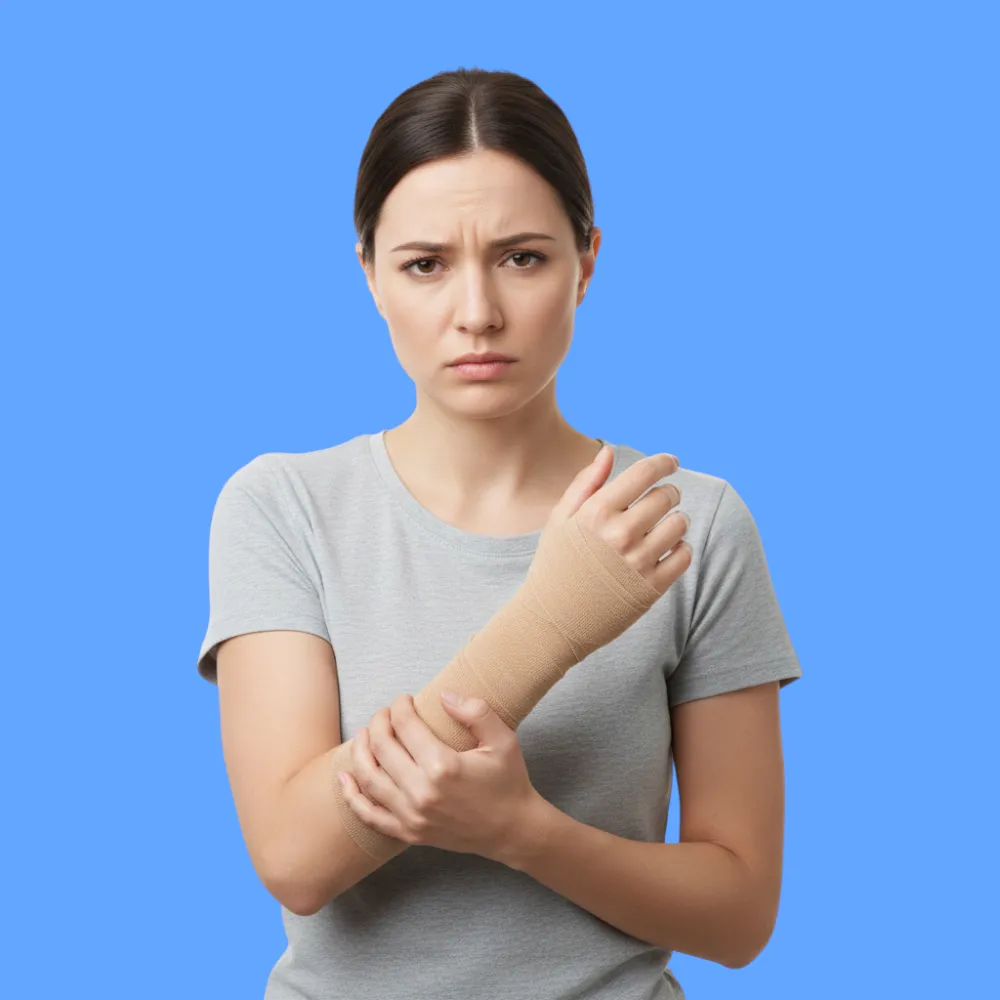What is tendonitis?
Tendonitis is considered a common condition that affects the tendons connecting muscles to bones, leading to discomfort that can significantly hinder daily movement.
It often occurs as a result of repetitive strain during activities or due to a sudden injury that impacts tissue flexibility, It can develop in various parts of the body such as the shoulder, elbow, knee, or heel and may affect quality of life if not managed properly.
Causes of tendonitis
The most common causes of tendonitis include:
- Repetitive movements for extended periods.
- Exercising without proper warm-up.
- Using inappropriate tools or footwear.
- Aging and loss of tendon flexibility.
- Sudden injuries during physical activity.
- Weak muscles supporting the joints.
- Certain chronic conditions such as diabetes.
- Long-term use of medications like corticosteroids.
Symptoms of tendonitis

Common symptoms a patient may experience include:
- Pain that worsens with movement.
- Mild swelling in the affected area.
- Difficulty moving the joint.
- A feeling of warmth or heat at the pain site.
- Stiffness upon waking or after rest.
- Weakness in muscle strength.
- Discomfort when touching the area.
- A cracking sound when moving the joint at times.
How is tendonitis diagnosed?
Tendonitis is usually diagnosed through a physical examination that includes assessing movement and applying pressure to the affected area while noting any swelling or weakness in performance.
In some cases, the doctor may request imaging tests such as ultrasound or MRI to accurately determine the extent of inflammation, especially if the pain is severe or persists for a long time without improvement.
Treatment for tendonitis
There are several ways to treat tendonitis, including:
- Rest and avoiding strenuous activities.
- Applying cold compresses to reduce swelling.
- Physical therapy and stretching exercises.
- Anti-inflammatory medications to relieve pain.
- Ultrasound therapy in certain cases.
- Splints or braces to stabilize the joint.
- Surgery in severe cases or when the tendon is torn.
When should you see a doctor?
It is advised to seek medical attention promptly if any of the following occur:
- Pain persists for more than two weeks.
- Severe swelling or redness in the affected area.
- Loss of ability to move the joint normally.
- Cracking sound accompanied by sharp pain.
- Presence of fever or heat along with symptoms.
- Pain interferes with sleep or daily activities.
- No improvement despite home treatment.
- Previous injury history in the same area.
Tips for preventing tendonitis
Recommended preventive measures include:
- Perform warm-up exercises before any physical activity.
- Avoid repetitive movements for long periods.
- Use proper tools and footwear for the activity.
- Take breaks during work or exercise.
- Maintain a healthy weight to reduce joint stress.
- Strengthen muscles supporting tendons with suitable exercises.
- Drink enough water to support tissue flexibility.
- Consult a specialist if you feel unusual pain.
Frequently Asked Questions
Is tendonitis dangerous?
It is usually not dangerous but can cause complications if neglected.
Can tendonitis be treated at home?
Yes, with rest and cold compresses in mild cases.
Does tendonitis cause swelling?
Mild swelling may occur in the affected area.
Does tendonitis require surgery?
Rarely, only if a tear occurs or other treatments fail.
Article Summary
Tendonitis is a common condition that causes pain and difficulty in movement due to strain or repeated injuries and can be diagnosed through examination and imaging.
Treatment includes rest, physical therapy, and medications, with surgery as an option for severe cases. Prevention relies on warm-up, rest, and using proper equipment.